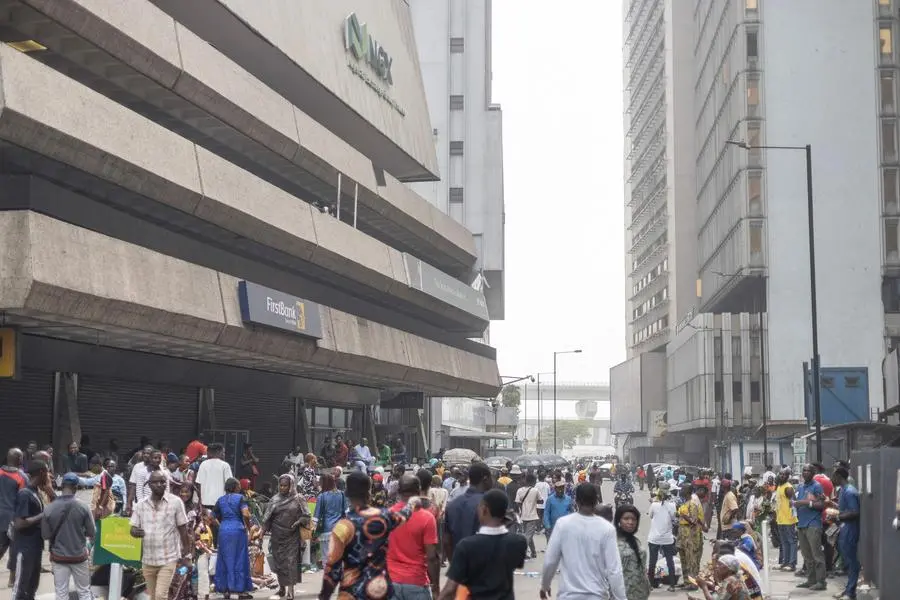PHOTO
The Sea Empowerment Research Centre has blamed the drop in import volume at Nigerian ports on persistency in unstable foreign exchange rate, which does not guarantee predictability and flexibility in import financial forecast, thereby forcing many companies to shut down businesses in Nigeria.
Recall That A Recent Report Revealed That Vehicles Import Volume Dropped By 55 Percent While Container Traffic Dropped To 30 Percent And Bulk Cargo Importation Into The Seaports Dropped To 20 Percent In The Last One Month Following The Persistent Adjustment Of The Customs Import Duty By The Central Bank Of Nigeria (cbn).
Speaking with the Nigerian Tribune, Head of Research at the Sea Empowerment Research Centre, Forwarder Eugene Nweke, explained that persistency in the foreign exchange rate, which does not guarantee predictability and flexibility in imports financial forecast, has led to many companies downsizing while others have left the country.
Related PostsCongestion looms at seaports as CBN hikes duty rateTRS implementation expected to bring 24-hour cargo clearance —Customs CGNSC boss lauds Ports & Cargo investment at seaport
Nweke said: “To buttress the dwindling imports statistics, let us take a case study with the following 75 India companies operating in Nigeria.
“Firstly, let us pencil down the Indian companies operating in Nigeria, (some are owned by proxy, a functions of shares stakes). This includes and not limited to: Nipco, Conoil, Seven-Up Bottling Company Plc, Emel Group, Atlantic Shrimpers Limited, Royal Salt, Kewalram Chanrai Group, Chellarams Plc, Tata Africa Services and Far East Mercantile Co Ltd.
“Others are Dana Group, Park n shop – Aarti Group, Milan Group, JAWA Group, MACE Group Lagos, Me-cure- Lekki, Airtel, Lacasera, Olam Nigeria Limited, Roomans Eneliye, Sunflag, Indomie/Dufil Prima Food, Tower Aluminum (Nigeria) Plc, Aarti Steel, Chi Limited, Bajaj Auto, Springfield Agro Ltd., PANAR Group, SIMBA group, Parco and Bhojsons & Co (Nig) Ltd.
“There are Tech Mahindra, Prestige insurance, Sterling Bank Plc, Churchgate, Primlaks Nig Ltd, Contec Global Ltd, Hyundai Motors Nigeria Ltd, Oando Plc, Dangote Group (by shares stake), Emjays, Veepee Industry Ltd., Somotex, Stallion Commodities, Dana Holdings, Nagode Industries Ltd, Pure Chem, Banarli Nigeria Limited, SKIPPER T&D Corp, Tech Mahindra Africa, Godrej Nigeria Ltd., Shree Steel, Sterling Global, Lagos Free Trade Zone, Spectra net, Afprint Nigeria, Samstar Nig Ltd, EnPee Nig, Satguru Travels, Metropolitan Ind, GeePee Group, Chanrai Nig Ltd, Sunola Food Ltd, Sapoonji Pala Ji, MBH Power, Sam Pharmaceutical Ltd, Cumberland Hotel, Ranbaxy, Spintex, Amri Global, Agro Allied, Contec Nig, Metro plotitan Ind, Amri Global, AI Ticks and others.
“The raw material, chemicals, service parts, machineries replacement needs of about 56 percent of this listed companies are serviced via importation. However, less than 10 percent of the listed companies has winded up their companies and left the country.
“About 37 percent of the listed companies have downsized its workforce, production lines operation now rationalised, thus, production is below capacity and in turn raw material and related imports needs has drastically reduced, to cushion the effects of unbearable overhead financial and capital production costs.
“Though, this is due to a combination of factors, but chief among them is poor monetary policies administration, especially the persistency in the foreign exchange rate, which does not guarantee predictability and flexibility in imports financial forecast for these companies.
“For instance, before now, one of the listed companies involved in bottled mineral drinks, which our agency helps with its imports clearance and logistics needs, used to import into the country an average of 250 containers of raw materials per month, but today, it hardly imports 50 containers in a month.
“Then about 34 percent of the listed companies are victims of multiplier effects of harsh fiscal economic and monetary policies, as such, are grappling with its shares of the precarious situation at hand.
“The remaining 10 percent of the listed companies are surviving merely by government patronage.
“The consequence of this development include but are not limited to increase inflation rate, lesser purchasing power of the masses in the face of new minimum wage palaver; increased hardship across the land, as an import dependent nation; rise in insecurity challenges, as a hungry and idle mind thinks in the negative alternatives; stagnated and deficit national balance of trade; government budgetary spending may be hindered and contractors may be owed, leading to abandonment of on-going projects. The ripple effects will spread to other sectors of the economy especially, agriculture, health, education, transportation, etc.”
Copyright © 2022 Nigerian Tribune Provided by SyndiGate Media Inc. (Syndigate.info).




















